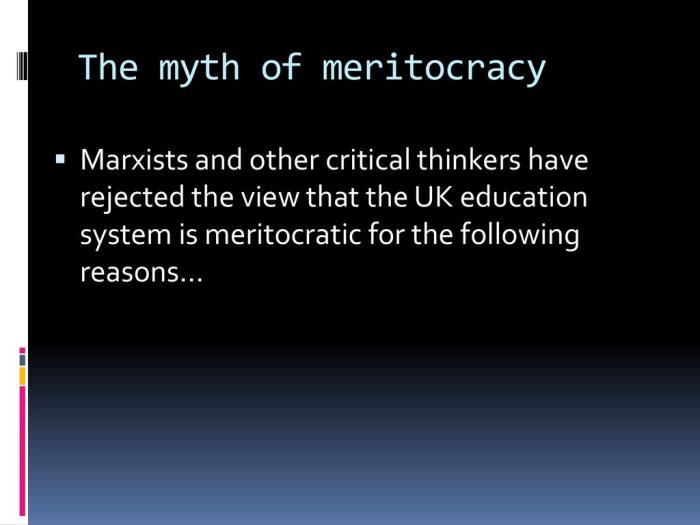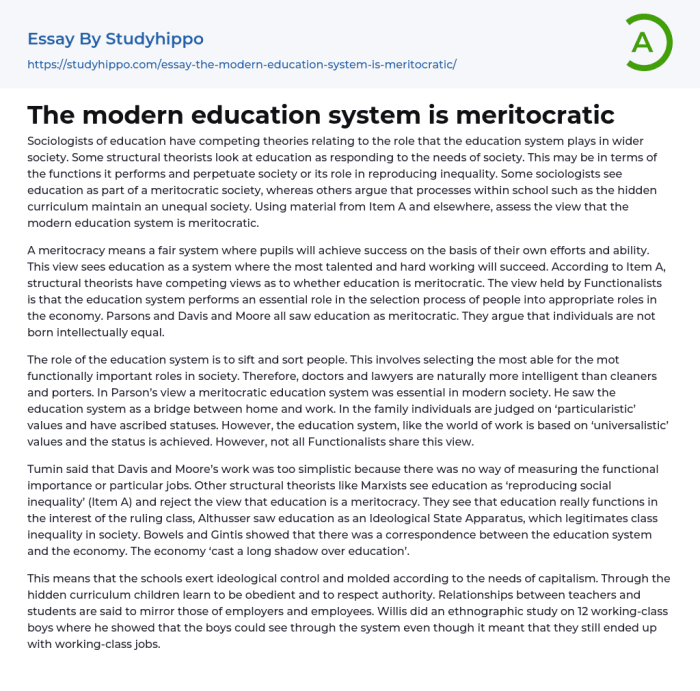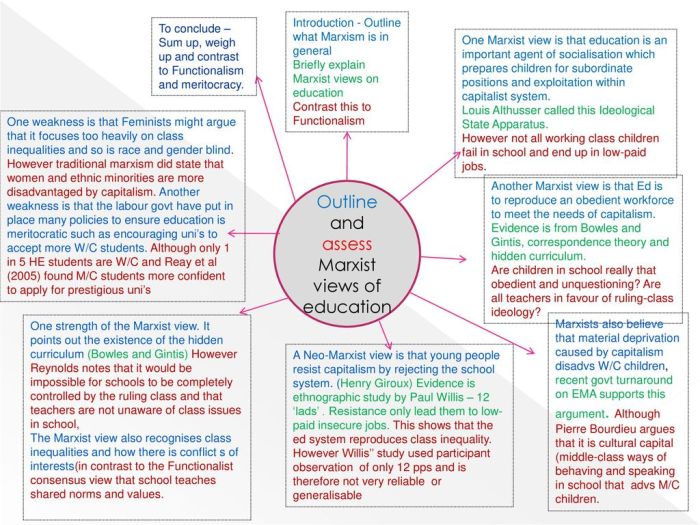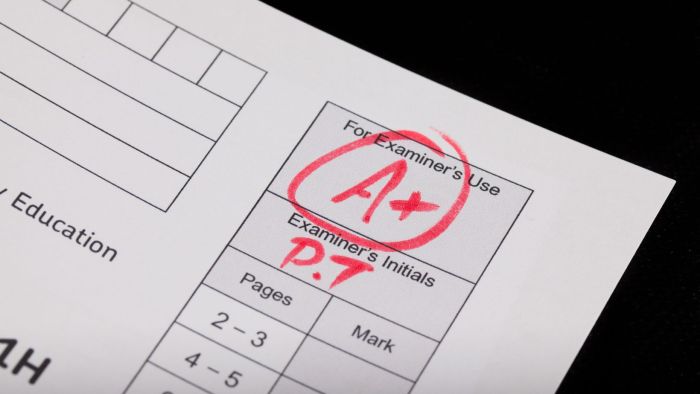Evaluate the view that the education system is meritocratic. This topic has sparked extensive debate, with proponents arguing that educational systems fairly reward effort and talent, while critics contend that systemic biases hinder equal opportunities for all. This essay delves into the evidence for and against meritocracy in education, exploring its implications and proposing recommendations for a more equitable system.
The concept of meritocracy, where individuals are rewarded based on their abilities and contributions, has been applied to education systems to justify the allocation of resources and opportunities. Standardized testing, grades, and socioeconomic status are often used as measures of merit, determining access to higher education and future career prospects.
Definition and Scope

A meritocracy is a system in which individuals are rewarded based on their talents, abilities, and efforts. In the context of education, a meritocratic system would be one in which students are given opportunities to succeed based on their academic abilities and hard work, regardless of their background or circumstances.
There are different perspectives on whether or not education systems are meritocratic. Some argue that education systems are largely meritocratic, and that students who succeed in school do so because they have the ability and motivation to do well. Others argue that education systems are not meritocratic, and that students from disadvantaged backgrounds are often denied the opportunities to succeed, regardless of their abilities.
Evidence for Meritocracy
There is some evidence to support the view that education systems are meritocratic. For example, studies have shown that students who score well on standardized tests are more likely to succeed in college and earn higher incomes. Additionally, students who earn good grades in high school are more likely to attend college and earn degrees.
However, it is important to note that these studies do not prove that education systems are meritocratic. It is possible that students from disadvantaged backgrounds are less likely to score well on standardized tests and earn good grades in high school, not because they are less able, but because they have fewer opportunities to succeed.
Evidence against Meritocracy, Evaluate the view that the education system is meritocratic
There is also evidence to challenge the view that education systems are meritocratic. For example, studies have shown that students from racial and ethnic minority groups are less likely to attend college and earn degrees, even when they have the same academic abilities as white students.
Additionally, students from low-income families are less likely to attend college and earn degrees, even when they have the same academic abilities as students from high-income families.
These studies suggest that education systems are not meritocratic, and that students from disadvantaged backgrounds are often denied the opportunities to succeed, regardless of their abilities.
Essential FAQs: Evaluate The View That The Education System Is Meritocratic
What are the key arguments in favor of meritocracy in education?
Proponents argue that meritocracy ensures that the most capable individuals are given the opportunity to succeed, fostering innovation and economic growth. It also promotes individual responsibility and encourages students to strive for excellence.
What are the main criticisms of meritocracy in education?
Critics contend that meritocracy can perpetuate existing inequalities, as students from disadvantaged backgrounds often face systemic barriers that limit their access to quality education and resources. Standardized testing, for example, has been shown to favor students from higher socioeconomic groups.
What are some recommendations for making education systems more meritocratic?
To enhance meritocracy in education, it is essential to address systemic barriers such as poverty, discrimination, and unequal access to resources. This can involve providing early childhood education, increasing funding for schools in underprivileged areas, and implementing policies that promote diversity and inclusion.


